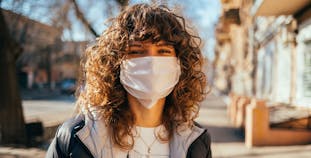Advance Online

Advance Online
Wearing a Mask with Psoriasis on the Face
Here’s how to make one, clean one and understand when to wear one, even if psoriasis impacts your face.

Here’s how to make one, clean one and understand when to wear one, even if psoriasis impacts your face.
We use cookies to offer you a better experience and analyze our site traffic. By continuing to use this website, you consent to the use of cookies in accordance with our Privacy Policy.